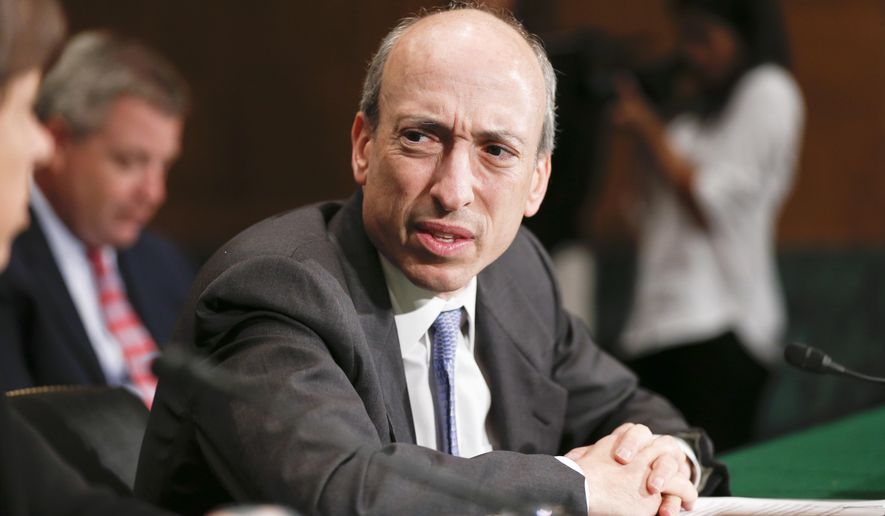Republicans in Congress are demanding records and information from the Securities and Exchange Commission regarding the agency’s proposed rule that public companies disclose climate risks and their impact on carbon emissions for investors.
The move is part of a broader effort by Republicans at the state and federal level to combat environmental, social and corporate governance, or ESG, investing that conservatives deem woke capitalism.
In a letter to SEC Chairman Gary Gensler this week, three top Republicans — House Financial Services Committee Chairman Patrick McHenry of North Carolina; Rep. Bill Huizenga of Michigan, who is leading an anti-ESG task force; and top Republican on the Senate Banking Committee Tim Scott of South Carolina — reupped previously unanswered requests and argued the proposal exceeds the commission’s authority and would harm the economy.
“Congress created the SEC to carry out the mission of protecting investors, maintaining fair, orderly and efficient markets, and facilitating capital formation — not to advance progressive climate policies,” the Republicans wrote. “Instead of pursuing its clear statutory mission, the SEC, under your leadership, has chosen to flout the democratic process and pursue its progressive social agenda through the promulgation of this extraordinarily expansive climate disclosure rule.”
The SEC did not immediately respond to a request for comment.
Mr. Gensler revealed this month in an interview with CNBC that in the face of pushback from companies and investors against the rule, which was proposed last year, the SEC was considering making “adjustments.” He denied the potential for changes was in response to anti-ESG political pressure.
Republican-led states across the country have divested billions of dollars in public pension funds from investment firms that support ESG, such as BlackRock. Meanwhile, GOP lawmakers in Congress are looking to combat the anti-oil investing strategy at the federal level.
Proponents of ESG argue that the practice helps protect the long-term viability of clients’ investments because it considers potential outside risks like climate change rather than looking at only return rates. Financial institutions like BlackRock deny assertions from critics that its support of ESG means it’s boycotting fossil fuel and energy companies.
In their letter, the GOP trio cited West Virginia v. EPA, a Supreme Court case last year where the conservative majority curtailed the administration’s ability to implement new climate-related regulations based on legislation passed by Congress, thereby limiting the power of federal agencies.
“Congress did not intend for the SEC to be an arbiter of business strategies, much less the determining body for climate policies,” the GOP letter to Mr. Gensler said. “This abuse of the rulemaking process, and blatant partisan efforts to circumvent the legislative process, are outside the bounds of the SEC’s mission and authority.”
The Republicans also chastised the SEC for refusing to comply with previous requests for similar information and records relating to the climate disclosure rule, saying they are “deeply concerned with the SEC’s lack of transparency and disregard for legitimate congressional oversight inquiries.”
The letter made requests for information by no later than March 8, including whether the SEC has considered if the rule would affect energy prices, if it coordinated with any White House climate officials and which SEC employees have worked on the proposed rule.
• Ramsey Touchberry can be reached at rtouchberry@washingtontimes.com.




Please read our comment policy before commenting.